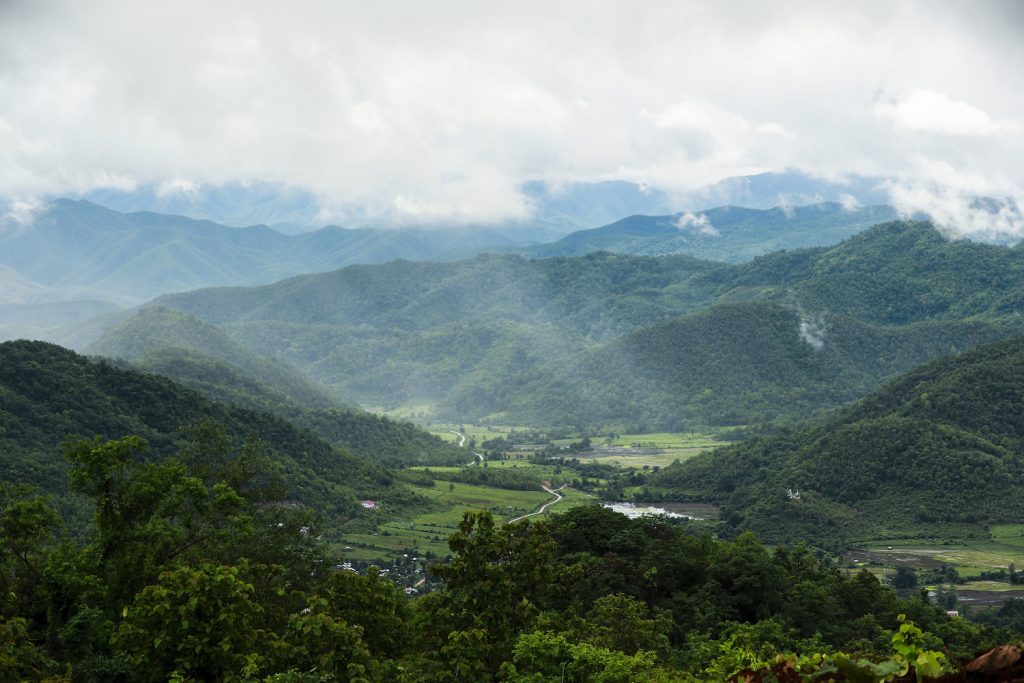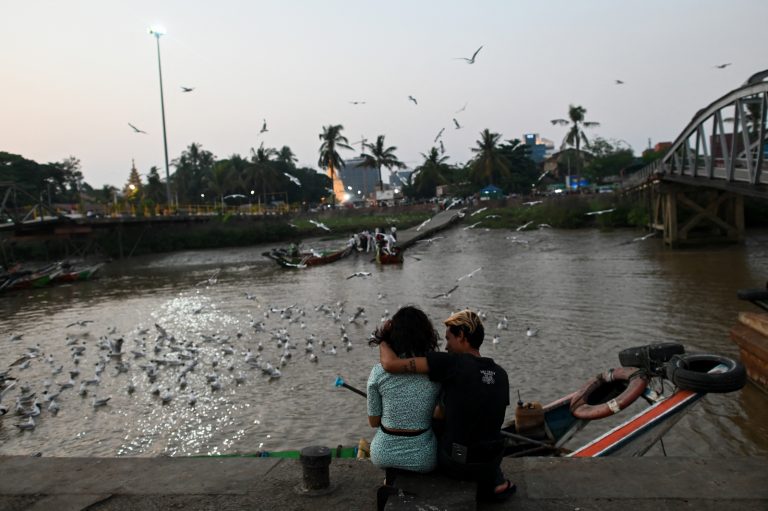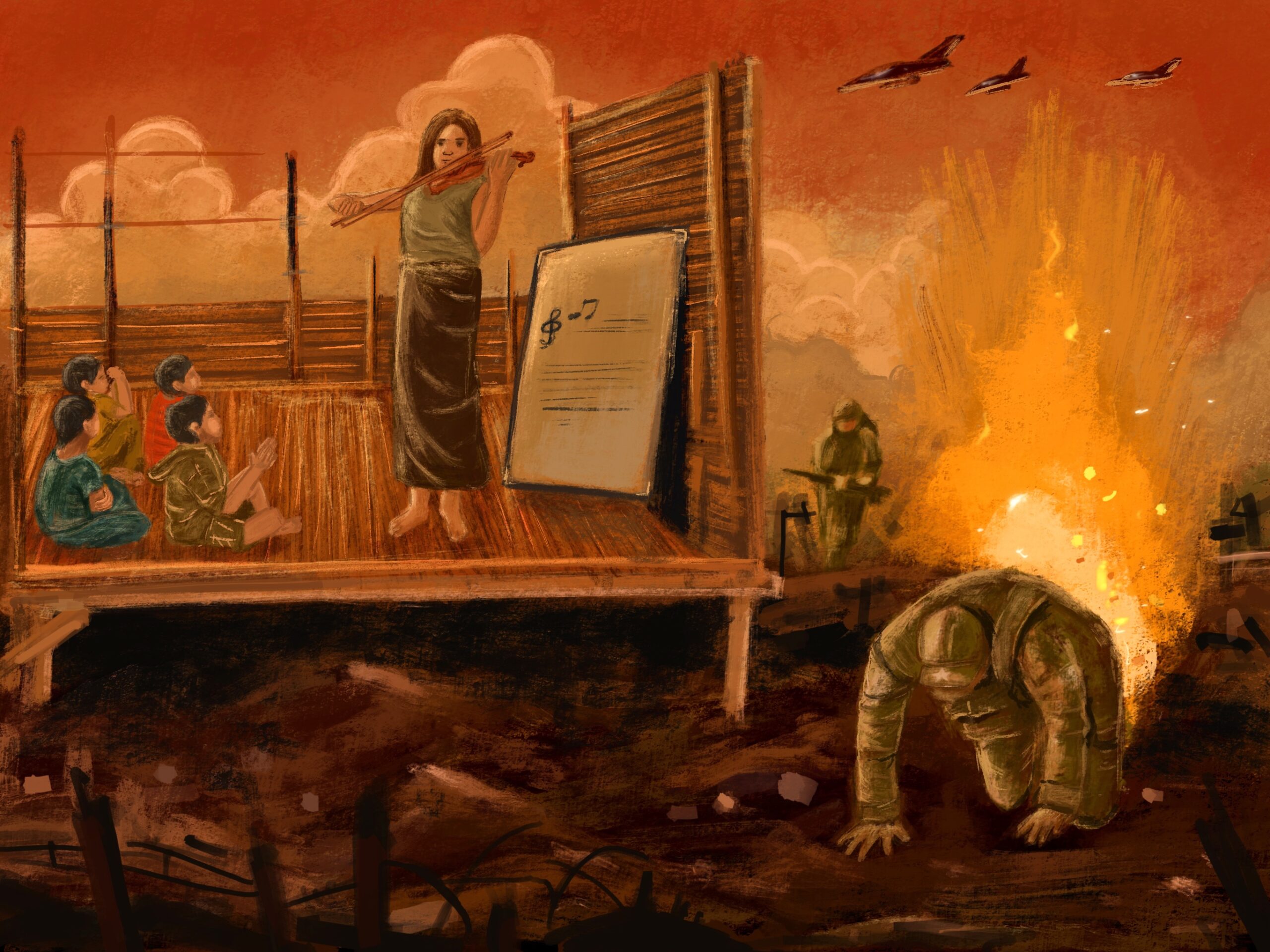Hundreds of candidates from 13 parties promise a lively election race in November in Kayah State, where the Kayah State Democratic Party is hoping to end the stranglehold that national parties have enjoyed since 2010.
By EI EI TOE LWIN | FRONTIER
Since mid-August, visitors arriving at the main bus station in the Kayah state capital Loikaw have been greeted by a large billboard featuring an image of National League for Democracy leader Daw Aung San Suu Kyi.
The red sign features a slogan in white letters exhorting voters to give the state counsellor their support in the November election.
Frontier couldn’t identify who set up the billboard, which does not bear the party logo. What is clear, though, is that the election battle has already begun in Kayah State.
During a recent reporting trip that covered five of the state’s seven townships, including the remote areas of Shadaw, Mese and Ywarthit, Frontier observed that many parties have invested heavily in new offices, particularly the NLD, the military-aligned Union Solidarity and Development Party, U Shwe Mann’s Union Betterment Party and Yangon-based United Democratic Party.
In an attempt to wrest control of the state away from the NLD, election hopefuls from the USDP and UBP have also begun handing out gifts, making donations and even paying residents to put up party signs and fly party flags in their compounds.
Daw Mar Lu, a Kayan who lives in Taungpaing Susee village in Shadaw Township, said she received K60,000 from the UBP to erect a party signboard in her compound. “They said K30,000 was for accepting the signboard and the rest is for my baby,” she told Frontier from the wooden verandah of her modest home, her young son wriggling on her lap.
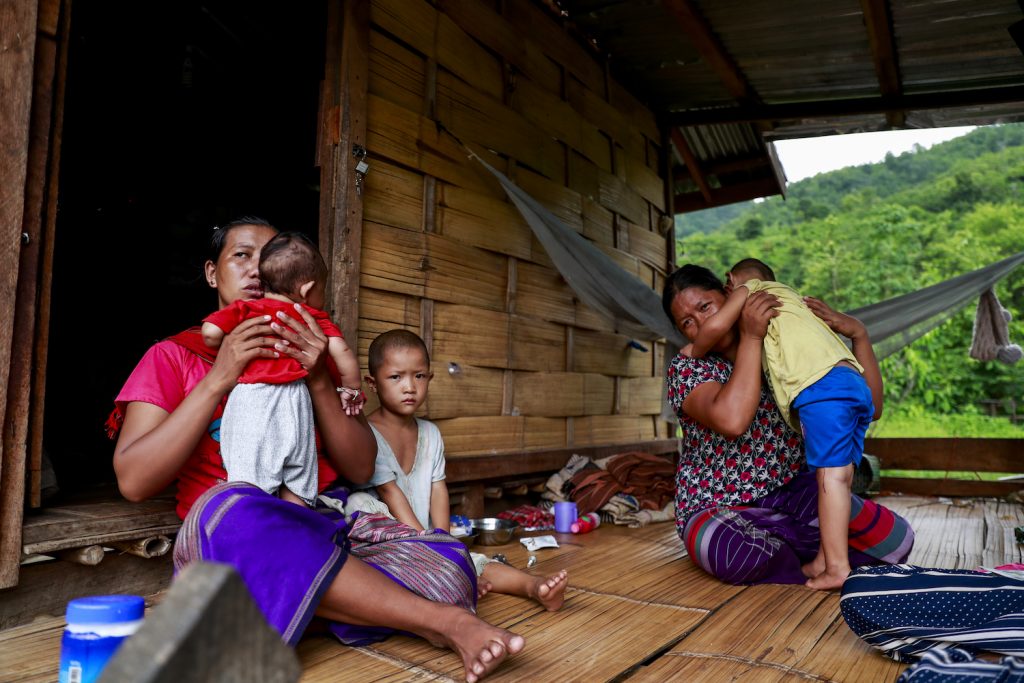
Formerly known as Karenni State, mountainous and conflict-torn Kayah State has long been a forgotten corner of the country, wedged between the Thai border, and Kayin and Shan states. But since the return of elections, Kayah’s unique features – specifically, its small size and low population – have made it a strategic focus for national parties. Five of the seven Pyithu Hluttaw, or lower house, seats had fewer than 20,000 voters in 2015; eight of the 12 Amyotha Hluttaw, or upper house, seats had fewer than 6,000.
Put simply, it’s possible to win seats in Kayah State with fewer votes than would be needed elsewhere in the country, where constituencies routinely have 150,000 or 200,000 voters. It also makes it more tempting to try and induce voters – after all, a little can go a long way in Kayah.
But this has also contributed to a large field of election hopefuls: 272 candidates have applied to contest the state’s 34 races, for an average of eight candidates per seat.
Thirteen parties are contesting seats, with the NLD, Union Solidarity and Development Party and Kayah State Democratic Party fielding candidates in every constituency.
“The UBP and UDP are also contesting many seats, but the commission cannot yet confirm how many,” U Kyaw San Win, the secretary of the state election sub-commission, told Frontier on August 10.
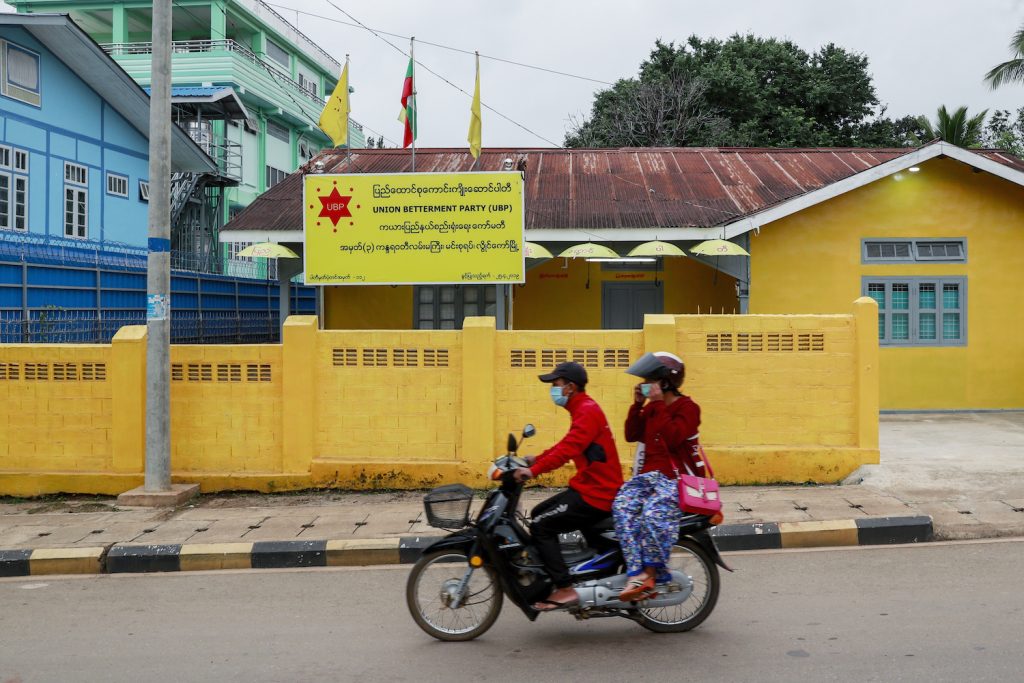
‘It’s a waste of time’
Ironically, though, the interest from political parties and candidates seems to be unrequited.
Because interest in checking voter lists was so low, state government officials had election sub-commission staffers go door-to-door to make people confirm that their information was correct.
“They didn’t check, even when we reminded them over a loudspeaker in front of their houses,” said U Kyaw San Win, secretary of the state-level election sub-commission. Sub-commission figures to August 9, five days before the end of the display period, show that about 40pc finally did check.
In conversations across the state, the lack of interest was clear. Most people of voting age told Frontier that they had not checked their entry on voters’ lists, and there was little talk about the election in restaurants and shops. Asked about voting intentions, most people said they had no idea which party to support, and some said they would not vote at all.
“I have never voted for a political party in my life and I’m not interested in checking the voters’ list; it’s a waste of time. I have to take care of my business,” said Daw Khin Cho Win, 60, who sells seasonal fruit near Naung Yar Lake in Loikaw town.
Members of political parties and community-based groups agree that residents of Kayah State are yet to show much interest in the election, but point out that it does not mean they will not vote on election day: in 2015, turnout in Kayah was among the highest in the country, at 74pc.
COVID-19 restrictions have also limited political parties’ activities and prevented civil society groups from conducting voter education programmes, said Naw Phaw Wah, director of Loikaw-based LAIN Technical Support Group, which youth leaders formed in 2016 to provide training to communities and undertake peace-building activities.
Tuk-tuk driver U Aung San Win, 42, said a political party opened an office in downtown Loikaw in mid-August and distributed T-shirts and hats. Asked the party’s name, he replied: “I don’t know its name but we are calling it the yellow party because the office is painted yellow.” Frontier later discovered that it was the UBP.
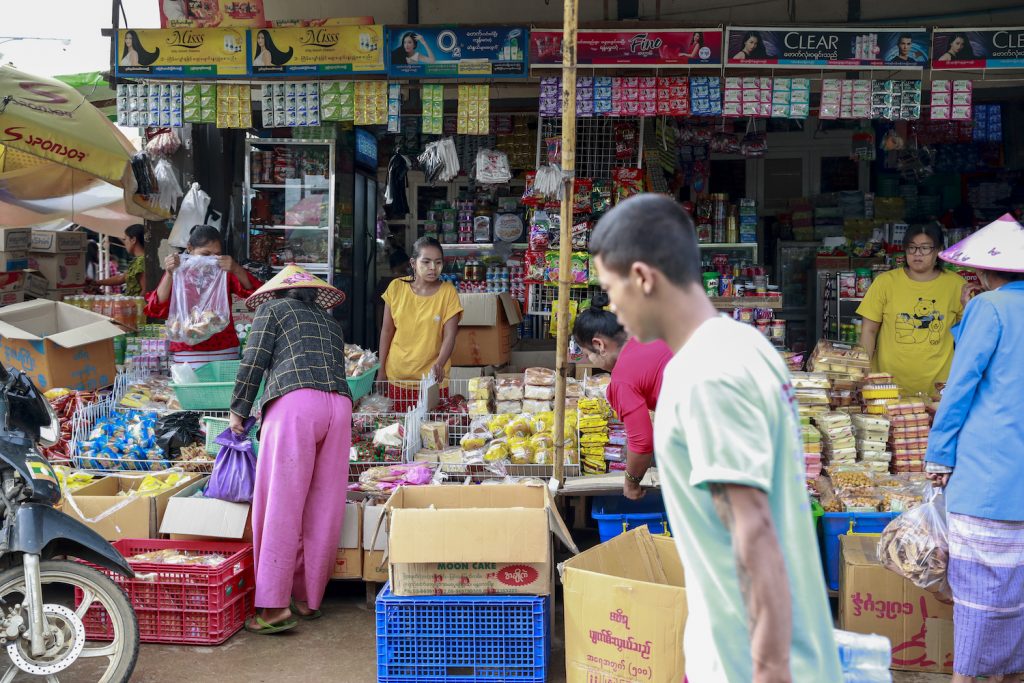
Aung San Win, who has lived in Loikaw’s Yadanar Myay quarter for more than 20 years, said he had never voted in an election because he regarded politics as being irrelevant.
“No matter what government we have, it can do nothing for me; I’m only interested in earning a living,” he said, but added that he was happy to accept gifts distributed by any party.
Other pre-campaign activities appear to have been more effective.
As part of the Union government’s national response to the economic distress caused by COVID-19, Kayah residents who qualify for assistance have been receiving cash handouts of K20,000. The distribution of the aid is managed by the NLD-led state government, which seems to be benefitting politically from the handouts.
“I received K20,000 from the NLD at an event held in the state hall,” recounted Daw Moe Thein, as she toiled on a road upgrade project outside a monastery in Bawlakhe, breaking rocks by hand. The Par Lu village resident added, “I will vote for the party which has cared for us while we are starving.”
The state’s chief minister, U L Phaung Sho (Mese-2, NLD), has done little to discourage recipients from seeing the cash handouts as NLD largesse.
A Kayah state government news release on August 13 quoted the chief minister as reminding residents at a cash handout ceremony in his home township of Mese to be sure to vote for the party that seeks democratic reform. “It is important to know which organisation will be able to carry out these reforms,” he said.
The potential for party or candidate spending to sway the outcome of the election has some worried. The KSDP expressed concern to Frontier that some new parties even appear to be paying people to sign up. Ma Mari Tun, the party’s secretary 1, said a senior party member in the southern township of Mese had left to join a new party – which she refused to name– and accused some parties of paying brokers to recruit members and candidates.
Daw Nyunt May, a UBP member in Bawlakhe Township, rejected suggestions that the party had been paying people to join. “People are joining our party because they don’t trust the party they supported in the past. We don’t slander any party and we welcome anyone who wants to work with us,” she said.
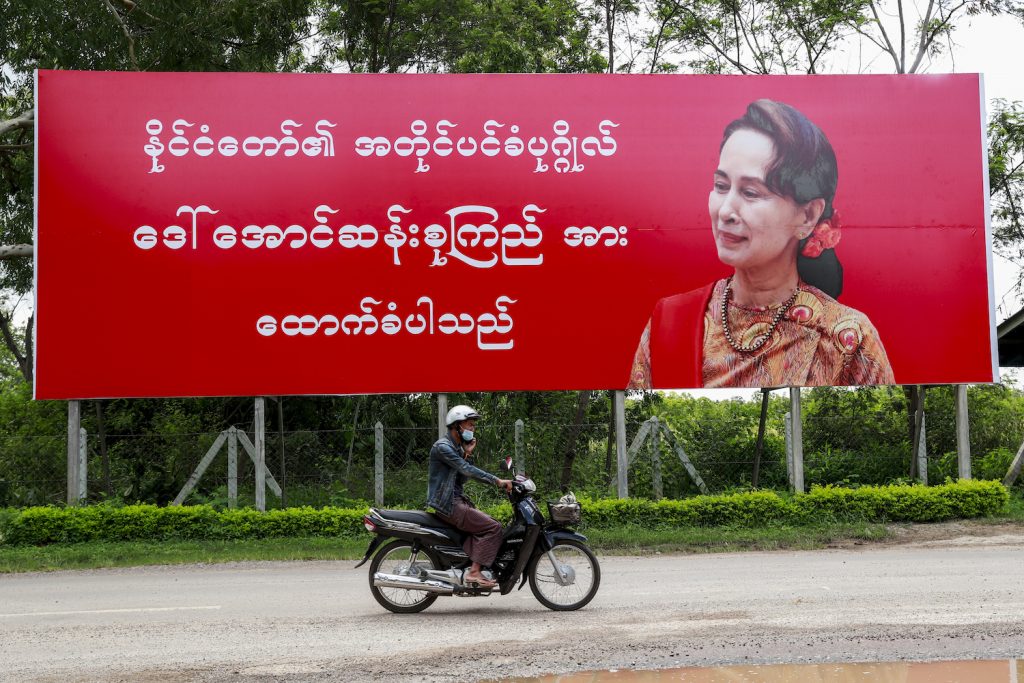
Another NLD landslide?
The election is still the NLD’s to lose, and it has the benefit of incumbency, but there are some worrying signs for the party.
In 2015, the party won 26 of Kayah’s 34 constituencies, typically with at least 50pc of the vote. The USDP took just seven seats and the other went to an independent, former minister for the President’s Office U Soe Thane.
In March 2016, President U Htin Kyaw appointed the little-known L Phaung Sho, a Buddhist of mixed Kayan-Shan heritage, as the state’s chief minister. The chief minister has been a divisive figure, and his government – like many other NLD administrations in the state and region – appears to be unpopular.
In particular, he has drawn criticism for supporting the construction of a statue of independence hero Bogyoke Aung San that was erected in the centre of Loikaw in late January 2019. Some of the state’s Karenni people regarded the move as an insult that showed the Bamar-dominated NLD did not care about their history and their feelings.
When the plan to build the statue was announced in mid-2018, Karenni youth leaders launched a campaign against the plan. In June that year the Loikaw General Administration Department brought charges against nine Karenni youth for defamation and incitement over their role in a letter campaign opposing the statue plan.
The following month, police dispersed a demonstration and charged 22 people under the Peaceful Assembly and Peaceful Procession Law. The state government responded to the rising tension by suspending the plan to erect the statue and appointing a committee to hold public consultations, but those opposed to the statue say there was no consultation.
Tensions rose further when the statue arrived in Loikaw and was officially installed in a ceremony on February 2, 2019, leading to more protests and more arrests.
When thousands of people protested in Loikaw on Union Day, February 12, to demand the statue be moved, police moved in to violently disperse them. About 20 people were injured.
A series of negotiations among state government officials, community leaders and representatives of the Karenni community resulted in charges being dropped against most protesters, except for six youth activists who were eventually sentenced to six months’ imprisonment for insulting the dignity of state officials, under section 8f of the Law Protecting the Privacy and Security of Citizens.
The erection of the bronze statue simmers in the minds of Kayah ethnic nationality communities, and it contributed to a deterioration in relations between the state government and civil society groups.
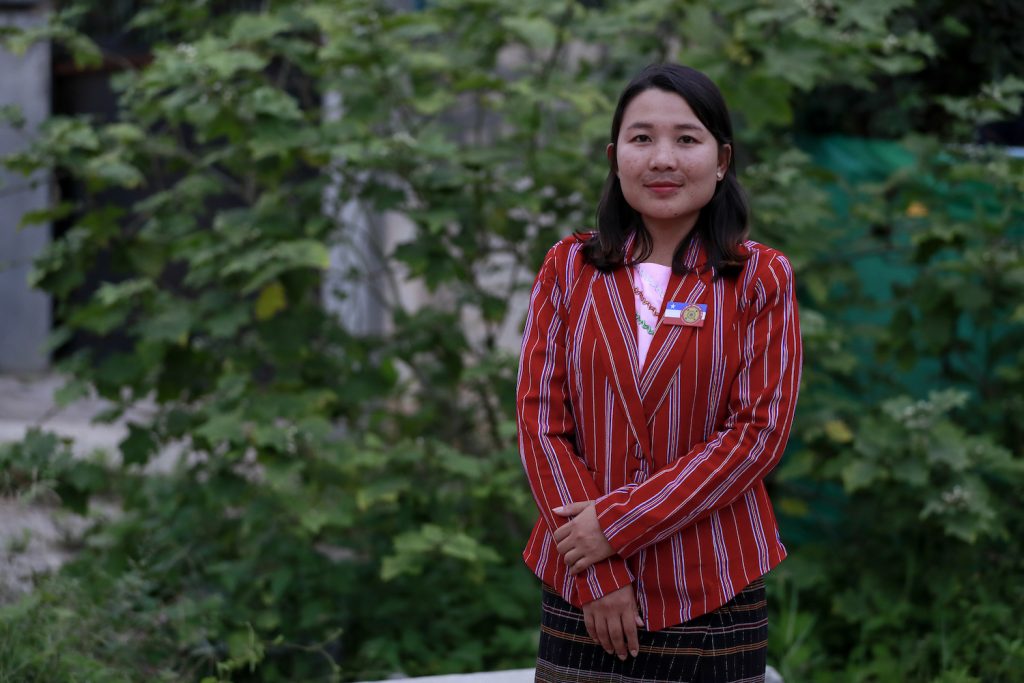
But activists and members of CSOs say relations with the state government began deteriorating from 2017, and the statue was just one example. The state government has placed numerous restrictions on civil society and political activities, and earlier this year used COVID-19 as a pretext to ban speeches, writing, pictures, posters, placards, pamphlets and anything deemed to be defamatory to the authorities, The Irrawaddy reported.
“After 2017, things did not go well; they did not cooperate with us, did not listen to our concerns, banned our activities and issued local orders to restrict our activities,” said Maw Moe Myar, one of the Karenni activists who was charged for taking part in protests against the statue.
“Our expectations have completely gone; I’m very disappointed,” said Maw Moe Myar, who is general secretary of the Karenni National Youth Organization and a central committee member of the Union of Karenni State Youth.
Despite perceptions the NLD is a Bamar-dominated party, its support in Kayah State appears to be built largely on the ethnic Kayah, who are the state’s largest group.
One of the few elections the NLD lost in 2015 was the Bamar ethnic affairs minister, with the party gaining only 30pc of the 22,000-plus votes cast.
Almost all Karenni activists campaigned actively for the NLD in 2015; Maw Moe Myar helped to provide security during Aung San Suu Kyi’s 2015 campaign tour of the state, when she also interpreted for the then opposition leader.
“All ethnic people believed that the objectives of equality and our ethnic rights would be implemented after the NLD won in 2015,” said Maw Moe Myar.
Another important factor in the NLD’s success five years ago was the Karenni National Progressive Party, which has been fighting for a separate Karenni state since 1957.
The KNPP signed a bilateral ceasefire with the previous USDP government in 2012 but in the election strongly backed the NLD’s candidates.
“The KNPP provided security during Daw Suu’s trip to Shadaw and it donated K25 million to the Daw Khin Kyi Foundation,” recalled NLD lawmaker Dr Khin Sithu, who represents Loikaw in the Pyithu Hluttaw.
In many of the township’s smaller constituencies, KNPP support is crucial, she said.
“The NLD cannot win without the support of the KNPP [in those areas]. It doesn’t matter if local people love or hate the NLD, they have to do what the KNPP says,” said Khin Sithu.
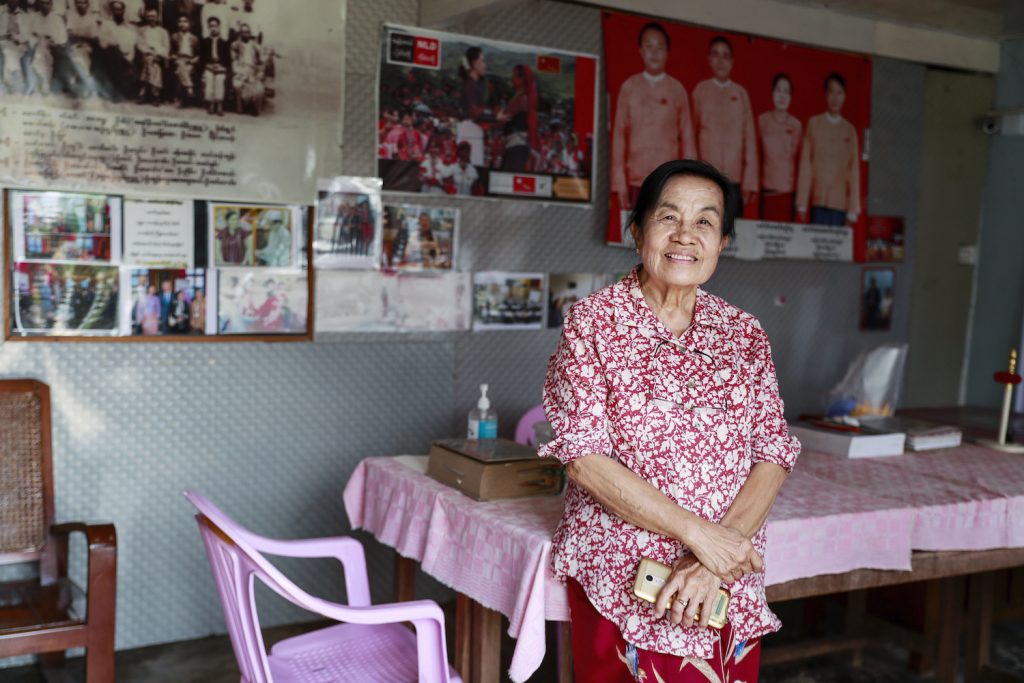
Maw Reh, a spokesperson for the USDP central committee in Kayah, said there was evidence that the KNPP forced people to vote for the NLD in 2015. Another ethnic armed group, the Karenni National People’s Liberation Front, has transformed into two Border Guard Forces under Tatmadaw command and their members are expected to support the USDP, as they did in 2015.
But this time around it looks as though the NLD will not be able to count on such strong support from the KNPP, which is yet to sign the Nationwide Ceasefire Agreement.
KNPP secretary Khu Daniel told Frontier that the group had supported the NLD in the past because it wanted democratic reform. He said relations with the NLD government had not been as good as expected and there had been no significant progress in the peace process.
“We have little contact with the state government, which we believe is going in the wrong direction. There is no channel at the state level for the peace process. If we need to discuss something we have to contact [Union government spokesman] U Zaw Htay – we can’t do anything,” he said.
Khu Daniel was also critical of what he said was the state government’s “oppression” of civil society groups.
“We want ethnic parties to win in November,” he said. “A government formed by local ethnic people is more likely to listen and work closely with the people.”
Even some senior NLD members admit that unhappiness at the state government is likely to cost the party seats in November.
“I tried to build unity among different groups, including ethnic armed groups,” said Khin Sithu, who chaired the party’s state committee in the 2015 election. “In 2015, the NLD could not win a majority without the support of CSOs and EAOs; now, the unity that I built has disintegrated.”
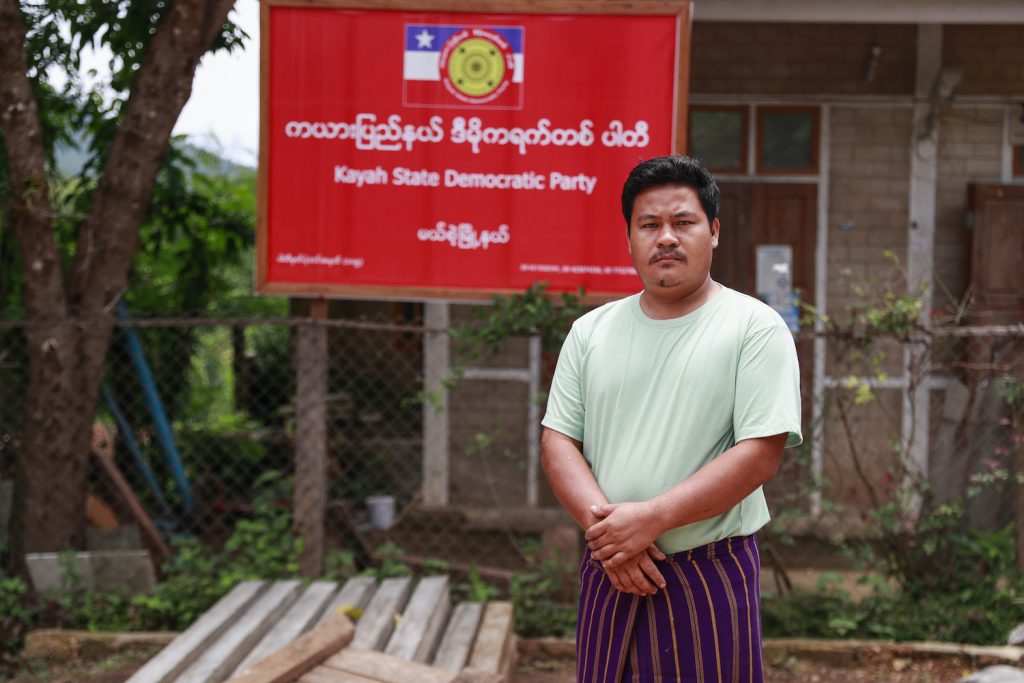
The time for ethnic parties?
Some ethnic nationalities in Kayah State are bitter about what they regard as a betrayal by the NLD and have changed their political allegiance.
Eleven well-known youth activists are running as candidates for the KSDP, which formed in 2017 by a merger between the Kayah Unity Democracy Party and the All Nationals Democracy Party (Kayah State).
Further helping its chances, the KSDP has reached an agreement with the Kayan National Party to not compete against each other, and both are confident of performing well in November.
The KSDP will contest 30 seats and the KNP four seats.
“With the focus on winning in the state, we formed an election alliance so as not to confuse ethnic voters like in 2015,” said U Steven Tun Tun, secretary 2 of the KSDP.
“Collaboration is an advantage; we are relying on youth involvement and 80pc of the candidates are young or middle aged and we are providing them with high-quality training,” said Mari Tun, who is seeking election in the Amyotha Hluttaw seat of Kayah-2, which encompasses half of Loikaw Township.
Anti-statue activist Maw Moe Myar has registered to contest the Pyithu Hluttaw seat of Shadaw Township for the KSDP.
The seat is held for the NLD by Daw Wint Wah Tun, who is seeking re-election.
Another prominent activist, Dee De, who was sentenced to six months’ imprisonment over his role in the campaign against the statue, is seeking election as the KSDP’s candidate in the Pyithu Hluttaw seat of Hpruso. He is a member of the Karenni State Farmers Union and a founder of the UKSY.
He was sentenced to 32 years’ imprisonment for leading a no vote campaign during the constitutional referendum in 2008, and was sentenced to 21 days in prison in 2017 for involvement in a protest against the killing of four KNPP soldiers by the Tatmadaw.
The KSDP is most hopeful of victories in Hpruso and Demoso because of the high ethnic nationality population in both townships, and has also targeted Loikaw, Shadaw and Mese.
“We have less of a chance in Hpasawng and Bawlakhe because the large number of military voters,” Mari Tun said.
But a challenge for the party is that it remains largely unknown to voters, who are more familiar with the NLD and the USDP.
And, although the chief minister was strongly criticised over the statue issue, there is still strong support for the NLD in Loikaw, where the predominant view is that many of those who protested were from Demoso and Hpruso townships.
“We are very sure to vote for the NLD again,” Ma Myat Thet Mon, owner of the Happy Baby Store in Loikaw, told Frontier. “You can see that the town has been developing under the NLD government. The upgraded roads enable us to go on day trips to another town.”
The growth in tourism in recent years has supported the opening of more hotels and restaurants in Loikaw town, though development lags elsewhere in the state. There are no proper hotels in some townships, including the chief minister’s constituency, Mese, which borders Thailand.
However, there has been considerable infrastructure development in Mese since early 2016. Roads, bridges, hospitals, stadiums, schools and dispensaries have been built, and the chief minister recently opened a new market on the border with Thailand to promote trade.
Opposition parties say Mese township is the least populous in Kayah but receives the highest percent of the state budget, but Frontier could find no official data to substantiate the accusation.
L Phaung Sho, who visits Mese once a week, is seeking re-election and is considered almost certain to win because of the support he enjoys in the township.
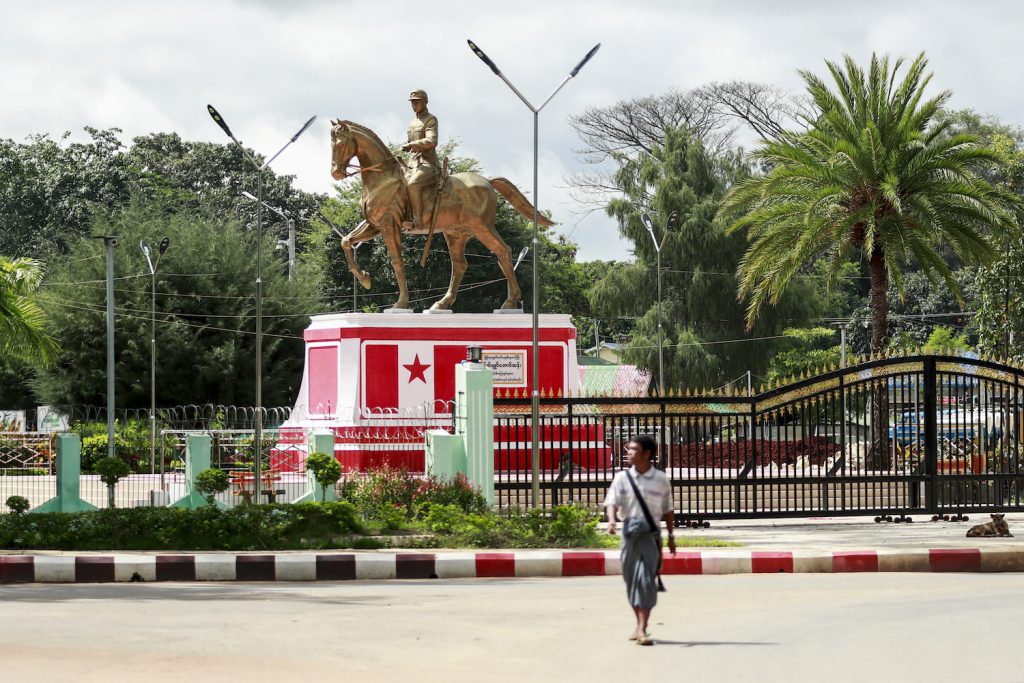
Disunity in the hluttaw
The NLD cannot be certain of victory elsewhere in the state, however. Party solidarity has been affected by disagreements over candidate selection, including the nomination by the party’s state central committee of candidates who were not on lists submitted by township committees. Although the head office in Yangon investigated the complaints, it sided with the leadership of the state branch.
Feelings are still running high over the issue and the Kayah Hluttaw speaker, U Hla Htwe, who held Shadaw-2 for the NLD, has resigned from the party to stand in the constituency as an independent. Hla Htwe, who also chairs the NLD’s central committee in Shadaw, was nominated by it and township elders as their preferred candidate, but the party’s state office overruled and replaced him with another candidate, Naw Sae Gay Htoo.
In another sign of the growing disunity in the NLD, the state hluttaw impeached L Phaung Sho for alleged malpractice on September 1. The allegations stemmed from a 2018 auditor general report that lawmakers say found the chief minister diverted K4 billion earned from renting out government-owned machinery into a private bank account. Five of the NLD’s nine lawmakers voted with MPs from the Tatmadaw, USDP and KSDP to impeach the chief minister. The chief minister had refused to cooperate with the hluttaw’s investigation into his conduct, and told RFA Burmese that he acted “in accordance with the law”. He also implied the move was related to November’s election.
Much attention is focused on the race for the five seats in Bawlakhe. The township is a stronghold of the USDP, which won four seats. The fifth went to Soe Thane, who was blocked from running for the USDP by Shwe Mann but this time will run for the Pyithu Hluttaw for the USDP.
A total of 45 candidates from 11 parties, and an independent, are in the running in Bawlakhe. The NLD is hoping its chances will be boosted by fielding well-known candidates and the USDP expects to attract the most votes from the three Tatmadaw battalions and a Border Guard Force based in Bawlakhe, which has 8,020 eligible voters.
In common with the situation elsewhere in the country, there are complaints from opposition parties about the election commission over its alleged favourable treatment of the NLD.
“We were asked to remove party billboards because we were told they do not conform with the rules and regulations, but the NLD has erected big billboards in some places. When we complain about the activities of the NLD, the UEC does not dare to take action,” said Maw Reh, the USDP spokesperson. “We are not afraid to compete against other parties and candidates, but we are worried about the impartiality of the election commission.”
The KSDP, meanwhile, is concerned about the possible impact on the election of voting by migrants, an issue that concerns many parties that represent ethnic nationalities. The Union parliament in May approved an amendment to the election law that reduces the residency requirement for migrants to be able to vote, to 90 days from 180 days. Ethnic parties believe the change will benefit the big parties.
“The NLD government plans to bring in migrant workers to vote in a particular constituency after living in it for 90 days,” said the KSDP’s Mari Tun. “It is very clear that roads are being repaired in Shadaw during the monsoon season. This doesn’t make sense – if it rains, they’ll be damaged again. We were told they are building them because they received a budget allocation.”
When Frontier travelled to Shadaw on August 14 there were road building projects underway and some were almost completed.
Kyaw San Win from the state election sub-commission said it was yet to begin compiling lists of migrant voters. “We cannot begin the process without permission from Nay Pyi Taw,” he said, adding that migrants’ names would be included when the second round of voters’ lists went on display.
Even if the NLD does prevail in the majority of seats in Kayah State in November, it will clearly face a much tougher challenge than five years ago and seems unlikely to repeat its landslide victory.
“In 2015 election, the USDP and NLD shared the votes,” said Maw Reh from the USDP. “This time, though, I’m sure that it will be us sharing the votes with the KSDP.”
Update, September 3: This article has been updated following L Phaung Sho’s impeachment on September 1.


